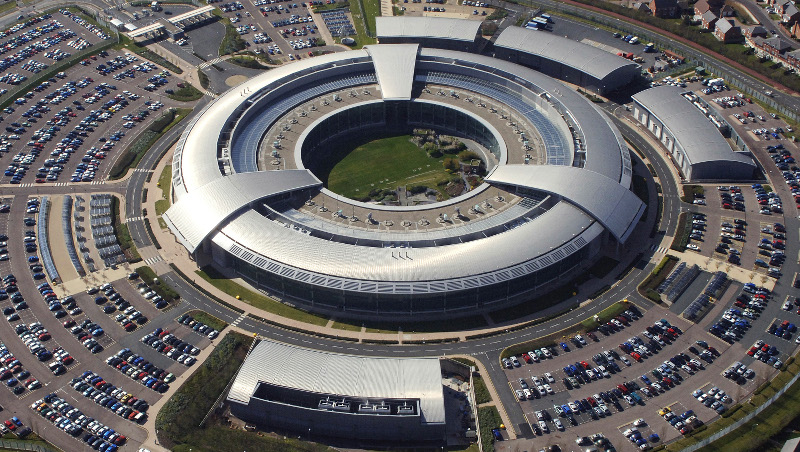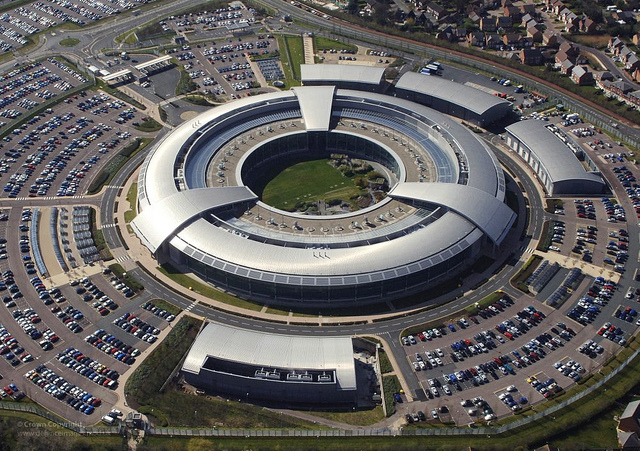GCHQ launches cyber security competition
Government surveillance agency wants computer experts to pit their wits against each other in new skills challenge.

The Government Communications Headquarters (GCHQ) has launched an online security competition to identify future espionage recruits and raise awareness of cyber attacks.
The surveillance agency said those aged 16 or over and not already working in cyber security could apply to test their ability to guard a computer network, but only 150 contestants would be allowed to compete.
While politicians around the world are increasingly worried by cyber threats, Britain sees them as a particular priority because GCHQ has had problems retaining internet sleuths who can double or triple their salaries in the private sector.
GCHQ director Iain Lobban, whose service breaks codes and intercepts communications, said in October 2011 that British government and industry computer systems were facing a "disturbing" number of cyber attacks that posed a threat to Britain's economic wellbeing.
The test will require players to analyse a mocked-up government computer communications network and look for vulnerabilities.
In a June 2012 speech, Jonathan Evans, director general of the MI5 Security Service, warned of "industrial-scale" cyber espionage and theft against Britain and cited the case of an unnamed London-listed company which lost 800 million as the result of a state cyber attack.
The test, called Balancing the Defense, will run between 1-to-8 October and require the players to analyse a mocked-up government computer communications network and look for vulnerabilities that an attacker could exploit.
Get the ITPro daily newsletter
Sign up today and you will receive a free copy of our Future Focus 2025 report - the leading guidance on AI, cybersecurity and other IT challenges as per 700+ senior executives
Participants will be asked to prioritise the threats and suggest defensive controls, both technical and policy-based, to reduce risks while abiding by a tight budget.
Participants must be Britons resident in the United Kingdom and will have to supply personal details when they apply to play here
Karl, a GCHQ official who declined to give his full name for security reasons, told Reuters the service had designed the competition to have a maximum of 150 players.
Those not chosen to play would be able to apply to other cyber contests promoted by Cyber Security Challenge UK, an educational organisation supported by the government and the private sector to raise Britain's cyber skills. Those will be accessible from the same website link.
Karl said the intention of the GCHQ test was to raise the public's knowledge of cyber threats and also identify potential gifted recruits for the spy service and for the private sector.
A GCHQ statement announcing the game made no mention of its staffing situation, but said the service was committed to finding and developing new cyber security skills in Britain.
Parliament's Intelligence and Security Committee, which oversees Britain's spy services, said in a 2011-2012 annual report that its main concern about the agencies' staffing was "the ability of GCHQ to retain internet specialists".
It said GCHQ was "losing critical staff with high-end cyber technology skills at up to three times the rate of the corporate average". Employing more than 5,000 staff, GCHQ has almost twice as many people as each of its sister agencies MI5 and MI6.
ITPro is a global business technology website providing the latest news, analysis, and business insight for IT decision-makers. Whether it's cyber security, cloud computing, IT infrastructure, or business strategy, we aim to equip leaders with the data they need to make informed IT investments.
For regular updates delivered to your inbox and social feeds, be sure to sign up to our daily newsletter and follow on us LinkedIn and Twitter.
-
 Bigger salaries, more burnout: Is the CISO role in crisis?
Bigger salaries, more burnout: Is the CISO role in crisis?In-depth CISOs are more stressed than ever before – but why is this and what can be done?
By Kate O'Flaherty Published
-
 Cheap cyber crime kits can be bought on the dark web for less than $25
Cheap cyber crime kits can be bought on the dark web for less than $25News Research from NordVPN shows phishing kits are now widely available on the dark web and via messaging apps like Telegram, and are often selling for less than $25.
By Emma Woollacott Published
-
 Former GCHQ intern risked national security after taking home top secret data
Former GCHQ intern risked national security after taking home top secret dataNews A former GCHQ intern has pleaded guilty to transferring data from a top-secret computer onto his work phone.
By Bobby Hellard Published
-
 Businesses must get better at sharing cyber information, urges former GCHQ chief
Businesses must get better at sharing cyber information, urges former GCHQ chiefJeremy Fleming, the former head of GCHQ, has warned businesses face increasingly sophisticated cyber attacks on critical national infrastructure (CNI).
By Rory Bathgate Published
-
 UK and US pledge to punish cyber criminals at annual meeting
UK and US pledge to punish cyber criminals at annual meetingNews Intelligence and defence officials met at the annual forum to discuss approaches to cyber security for the years ahead
By Connor Jones Published
-
 GCHQ opens up about concealing cyber threats from global community
GCHQ opens up about concealing cyber threats from global communityNews In a series of publications from GCHQ and the NCSC, security directors explain why and how it keeps security threats a secret
By Connor Jones Published
-
 GCHQ has "over-achieved" at developing state hacking tools
GCHQ has "over-achieved" at developing state hacking toolsNews The organisation has developed double the offensive cyber attacks than that of criminals
By Clare Hopping Published
-
 Canada's spy agency releases its own anti-malware tool to the public
Canada's spy agency releases its own anti-malware tool to the publicNews The CSE says its scalability makes it an ideal fit for enterprise applications
By Dale Walker Published
-
 The Queen formally opens National Cyber Security Centre
The Queen formally opens National Cyber Security CentreNews UK cyber chief talks tough in the face of hacker threats
By Adam Shepherd Published
-
 UK hit 'by almost 200 Russian cyber attacks' in three months
UK hit 'by almost 200 Russian cyber attacks' in three monthsNews Cybersecurity chief: Britain could soon be hit by a "category one" attack
By Adam Shepherd Published
